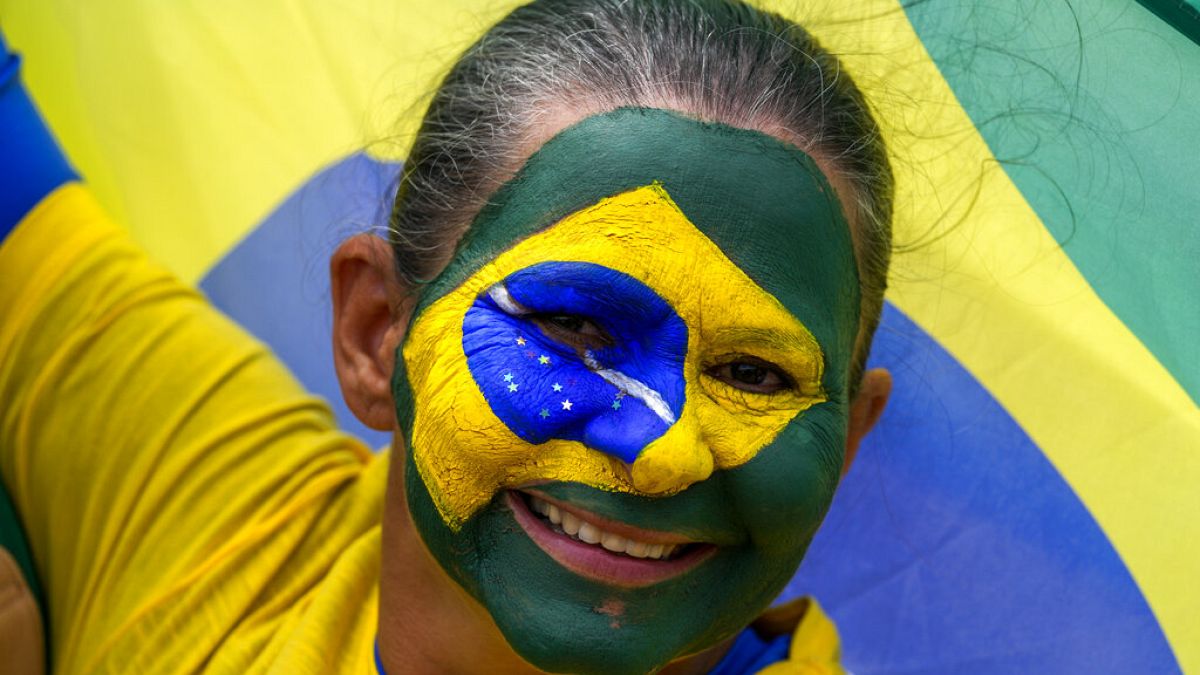"Bolsonaro has been saying that he reserves the right to only accept a defeat in the upcoming general election if he judges that they were fairly held," warns Rafael Loris, a professor of Latin American and Brazilian History and Politics at the University of Denver.
Almost no other country has experienced the crisis in liberal democracy as clearly as Brazil.
Democratic institutions have been under attack for some time. But now, as the nation gears up to hold its presidential election in October, the stakes could not be higher. Depending on the results and, more importantly, whether President Jair Bolsonaro accepts them, Brazil will either have an even more overtly authoritarian regime or will finally begin the path towards rebuilding its damaged democratic institutions.
This grave situation represents a dramatic change from the Brazil of a decade ago when the country was seen as an emerging democracy rising in global importance. Extreme poverty had been ameliorated through innovative welfare programmes and its diplomatic influence expanded across the world. By 2014, though, amidst the belated impact of the global financial crisis, right-wing populism gained ground in Brazil.
Powerful conservative forces reasserted themselves, often through non-democratic means, culminating in their refusal to accept the result of the 2014 presidential election. An opportunistic alliance between business, media conglomerates, and a libertarian grassroots movement coordinated street protests demanding the impeachment of Dilma Rousseff, the country’s first female president.
In the end, traditional power brokers returned to power. Rousseff’s investigations into atrocities committed by the military regime were thwarted by conservative forces that occupied key positions in government. The questionable way that these conservative forces took office cost the party support and paved the way for a free-for-all situation in the presidential election of 2018.
Mainstream conservative parties couldn’t get traction in the polls and the only truly popular figure, former president Lula, was illegally barred from running. This perfect-storm scenario allowed long-time insider and unremarkable congressman Bolsonaro to rebrand himself as an anti-establishment candidate who had been anointed by God to fix the country’s (largely fabricated) crisis.
Elected by a Frankenstein-like coalition of free-market ideologues, export agribusiness conglomerates, reactionary military leaders, and morally conservative evangelical forces, Bolsonaro continued to praise the dictatorship and dismiss human rights concerns.
He recurrently proclaimed that women need to remain in a subordinate role. He disparaged LGBT minorities and promised to prevent indigenous groups from living on their ancestral lands. He has also actively promoted the destruction of the Amazon forest and portrayed environmental groups as enemies of the nation.
He has consistently attacked the country’s democratic institutions, particularly its Supreme Court, when it acted to curb his most authoritarian moves. Moreover, he filled key cabinet positions with retired and active-duty generals and has recurrently appealed to his most vocal supporters to help him bring to power an overtly authoritarian government in which he could rule unrestrained by the law or other branches of power.
But although Bolsonaro has faced some resistance among local governors, Congress and, more often, the federal judiciary, none of them have been able to entirely tame his dictatorial impulses. And only freely-held elections can purge Brazil of his most overt dictatorial impulses.
Predictably, Bolsonaro has been saying that he reserves the right to only accept a defeat in the upcoming general election if he judges that they were fairly held. This makes sense since - thus far he has been consistently trailing behind Lula in the polls. By attacking the results before polling day, he is preparing the way to try and stay in power illegally.
It is unclear whether he has the support of the armed forces to achieve this goal. Unlike in many EU member states, Brazil has an effective national system of electronic voting, which allows for results to be known in a matter of hours, limiting the scope for uncertainty. Moreover, electoral courts remain independent that oversee the running of elections, a process which is highly transparent and involves all parties.
Though still behind in most polls, Bolsonaro has managed to mobilise thousands of his most fervent supporters out on the streets. During Bolsonaro’s presidency, many have been allowed to have access to guns on a more wide-scale than ever before. Moreover, generals closely aligned with him have consistently supported Bolsonaro’s claims that the military should have oversight over the electoral counting, something which is not prescribed in the constitution and represents a grave over-reach of the armed forces into civilian affairs.
In response, democratic actors throughout Brazil are mobilising to defend their rights to free and fair elections. Their efforts won’t be enough, however, unless global democratic forces stand behind Brazilians who want to continue to live in a democratic regime.
Brazilian grassroots organisations, students, and all progressive and democratic groups must stand together to defend democratic principles. They need to pressure Brazil's European friends and allies to not accept any attempt by Bolsonaro to not recognise the result of the upcoming elections. After all, either democracies work together to defend themselves or anti-democratic actors will tragically have the upper hand.
Rafael Ioris_is a Professor of Latin American and Brazilian History and Politics at the University of Denver and a founding member of the US Network for Democracy in Brazil (USNDB)._
